Wire rope is an essential material used in a variety of applications across industries in New Zealand. Designed to provide superior strength and durability, wire ropes are a versatile and reliable choice for a wide range of lifting, pulling, and securing operations. Whether you are in construction, offshore drilling, mining, shipping, or any other industry that requires heavy-duty lifting and material handling, wire ropes are an indispensable tool that can provide the safety and reliability you need. In New Zealand, wire ropes are crucial for numerous applications where strength, flexibility, and durability are paramount. From the bustling ports of Auckland to the rugged terrains of the South Island, wire ropes play a critical role in enabling the smooth and efficient operation of various industries. With their ability to withstand high loads and harsh environmental conditions, wire ropes are trusted by professionals across the country to get the job done right.

.
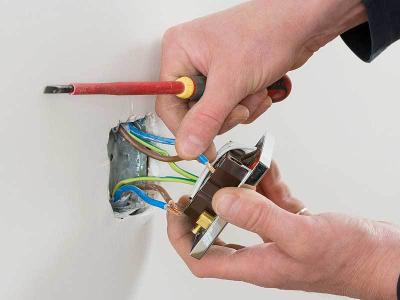 One of the key advantages of wire ropes is their exceptional strength-to-weight ratio. Made from multiple strands of wire twisted together to form a helix, wire ropes can support heavy loads while remaining relatively lightweight. This makes them ideal for applications where weight is a concern, such as in cranes, winches, and other lifting equipment. The high tensile strength of wire ropes ensures that they can handle the stress and strain of lifting and pulling operations without compromising on safety. In addition to their strength, wire ropes are also known for their flexibility and durability. The individual wire strands that make up a wire rope are designed to move independently of each other, allowing the rope to bend and flex without losing its structural integrity. This flexibility is essential in applications where the rope needs to navigate around corners or through tight spaces. Furthermore, wire ropes are highly resistant to abrasion, corrosion, and fatigue, ensuring long-lasting performance even in demanding environments. When it comes to choosing the right wire rope for your specific needs, there are several factors to consider. The first step is to determine the required strength and working load limit for your application. Different types of wire ropes are available with varying strength ratings to accommodate a wide range of lifting and pulling requirements. It is crucial to select a wire rope that can safely support the loads you will be handling to prevent accidents and equipment failure. Another important consideration when selecting a wire rope is the construction and configuration of the rope itself. Wire ropes come in different designs, including standard lay, lang lay, and non-rotating, each with its unique characteristics and advantages. The lay of the wire rope refers to the direction in which the individual wires are twisted together, which can affect the rope’s flexibility, strength, and resistance to abrasion. Choosing the right lay pattern is essential to ensure optimal performance and longevity of the wire rope in your specific application. In addition to the lay pattern, the material used to make the wire rope is also a critical factor to consider. Wire ropes are typically made from steel, which provides the strength and durability needed for heavy-duty applications. However, there are different grades and types of steel wire ropes available, each with its specific properties and performance characteristics. For example, stainless steel wire ropes offer superior corrosion resistance, making them ideal for use in marine environments or applications where exposure to moisture is a concern. Once you have determined the required strength, configuration, and material of the wire rope, the next step is to select the appropriate diameter and length of the rope.
One of the key advantages of wire ropes is their exceptional strength-to-weight ratio. Made from multiple strands of wire twisted together to form a helix, wire ropes can support heavy loads while remaining relatively lightweight. This makes them ideal for applications where weight is a concern, such as in cranes, winches, and other lifting equipment. The high tensile strength of wire ropes ensures that they can handle the stress and strain of lifting and pulling operations without compromising on safety. In addition to their strength, wire ropes are also known for their flexibility and durability. The individual wire strands that make up a wire rope are designed to move independently of each other, allowing the rope to bend and flex without losing its structural integrity. This flexibility is essential in applications where the rope needs to navigate around corners or through tight spaces. Furthermore, wire ropes are highly resistant to abrasion, corrosion, and fatigue, ensuring long-lasting performance even in demanding environments. When it comes to choosing the right wire rope for your specific needs, there are several factors to consider. The first step is to determine the required strength and working load limit for your application. Different types of wire ropes are available with varying strength ratings to accommodate a wide range of lifting and pulling requirements. It is crucial to select a wire rope that can safely support the loads you will be handling to prevent accidents and equipment failure. Another important consideration when selecting a wire rope is the construction and configuration of the rope itself. Wire ropes come in different designs, including standard lay, lang lay, and non-rotating, each with its unique characteristics and advantages. The lay of the wire rope refers to the direction in which the individual wires are twisted together, which can affect the rope’s flexibility, strength, and resistance to abrasion. Choosing the right lay pattern is essential to ensure optimal performance and longevity of the wire rope in your specific application. In addition to the lay pattern, the material used to make the wire rope is also a critical factor to consider. Wire ropes are typically made from steel, which provides the strength and durability needed for heavy-duty applications. However, there are different grades and types of steel wire ropes available, each with its specific properties and performance characteristics. For example, stainless steel wire ropes offer superior corrosion resistance, making them ideal for use in marine environments or applications where exposure to moisture is a concern. Once you have determined the required strength, configuration, and material of the wire rope, the next step is to select the appropriate diameter and length of the rope.
..
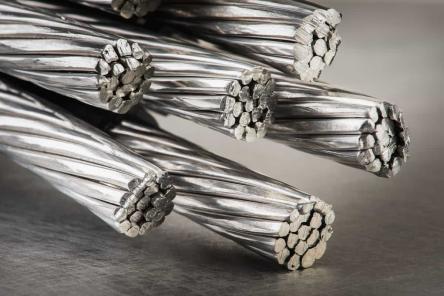 The diameter of the wire rope affects its breaking strength, flexibility, and resistance to fatigue, so it is essential to choose a size that is compatible with your equipment and application requirements. The length of the wire rope should be sufficient to accommodate the working height and distance needed for your lifting or pulling operation while allowing for some slack to prevent overloading. In addition to selecting the right wire rope, proper maintenance and inspection are essential to ensure the safety and reliability of the rope over time. Regular inspections should be conducted to check for signs of wear, corrosion, or damage that could compromise the integrity of the wire rope. Any worn or damaged sections should be replaced immediately to prevent accidents and equipment failure. Routine lubrication can also help extend the life of the wire rope by reducing friction and wear between the individual wires. In conclusion, wire ropes are indispensable tools for a wide range of lifting, pulling, and securing operations across industries in New Zealand. Their exceptional strength, flexibility, and durability make wire ropes a reliable choice for applications where safety and reliability are paramount. By selecting the right wire rope based on strength, configuration, material, diameter, and length, you can ensure optimal performance and longevity in your specific application. With proper maintenance and inspection, wire ropes can provide years of dependable service, contributing to the success and efficiency of your operations. Whether you are lifting heavy loads in a construction site, securing cargo on a ship, or performing offshore drilling operations, wire ropes are the go-to choice for professionals who demand performance and reliability in their equipment. With their versatility and reliability, wire ropes are essential components in a wide range of industries in New Zealand. Let’s take a closer look at some specific applications where wire ropes play a crucial role: 1. Construction: In the construction industry, wire ropes are commonly used in cranes for lifting heavy materials and equipment to heights during building projects. The high strength and durability of wire ropes make them an ideal choice for handling the heavy loads encountered in construction sites. Whether it’s lifting steel beams, concrete slabs, or machinery, wire ropes provide the necessary support and stability to ensure safe and efficient operations on the construction site.
The diameter of the wire rope affects its breaking strength, flexibility, and resistance to fatigue, so it is essential to choose a size that is compatible with your equipment and application requirements. The length of the wire rope should be sufficient to accommodate the working height and distance needed for your lifting or pulling operation while allowing for some slack to prevent overloading. In addition to selecting the right wire rope, proper maintenance and inspection are essential to ensure the safety and reliability of the rope over time. Regular inspections should be conducted to check for signs of wear, corrosion, or damage that could compromise the integrity of the wire rope. Any worn or damaged sections should be replaced immediately to prevent accidents and equipment failure. Routine lubrication can also help extend the life of the wire rope by reducing friction and wear between the individual wires. In conclusion, wire ropes are indispensable tools for a wide range of lifting, pulling, and securing operations across industries in New Zealand. Their exceptional strength, flexibility, and durability make wire ropes a reliable choice for applications where safety and reliability are paramount. By selecting the right wire rope based on strength, configuration, material, diameter, and length, you can ensure optimal performance and longevity in your specific application. With proper maintenance and inspection, wire ropes can provide years of dependable service, contributing to the success and efficiency of your operations. Whether you are lifting heavy loads in a construction site, securing cargo on a ship, or performing offshore drilling operations, wire ropes are the go-to choice for professionals who demand performance and reliability in their equipment. With their versatility and reliability, wire ropes are essential components in a wide range of industries in New Zealand. Let’s take a closer look at some specific applications where wire ropes play a crucial role: 1. Construction: In the construction industry, wire ropes are commonly used in cranes for lifting heavy materials and equipment to heights during building projects. The high strength and durability of wire ropes make them an ideal choice for handling the heavy loads encountered in construction sites. Whether it’s lifting steel beams, concrete slabs, or machinery, wire ropes provide the necessary support and stability to ensure safe and efficient operations on the construction site.
…
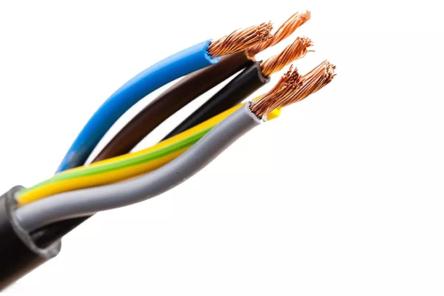 2. Mining: In the mining industry, wire ropes are used in various equipment and machinery for digging, hauling, and transporting materials in mines. From hoisting ore and minerals to operating conveyor systems, wire ropes withstand the extreme conditions of underground mining environments. Their resistance to abrasion, corrosion, and fatigue makes wire ropes a reliable choice for handling the demanding tasks involved in extracting and processing valuable minerals in New Zealand’s mines. 3. Shipping: Wire ropes are essential for securing cargo on ships, serving as lifelines, and supporting rigging systems for sails and masts. The marine environment poses unique challenges, including exposure to saltwater, wind, and waves, which can accelerate corrosion and wear on equipment. Wire ropes made from stainless steel or other corrosion-resistant materials are well-suited for maritime applications, providing the strength and durability needed to withstand the harsh conditions at sea. 4. Offshore drilling: Wire ropes are critical components in offshore drilling operations, where they support drilling equipment, handle heavy loads, and facilitate the movement of materials on oil rigs and platforms. The reliability and performance of wire ropes are vital for ensuring the safety and efficiency of offshore drilling activities in New Zealand’s waters. With their high tensile strength and resistance to environmental factors, wire ropes play a key role in the success of offshore exploration and production operations. 5. Transport and logistics: Wire ropes are also used in the transport and logistics industry for applications such as securing cargo on trucks and trailers, operating overhead cranes in warehouses, and supporting material handling equipment in distribution centers. The flexibility and strength of wire ropes make them an ideal choice for lifting, pulling, and securing operations in the fast-paced world of transport and logistics. Whether it’s moving goods in a warehouse or transporting heavy equipment on a flatbed truck, wire ropes provide the stability and reliability needed for safe and efficient operations. In conclusion, wire ropes are versatile and reliable tools that are indispensable in a wide range of industries in New Zealand. Their exceptional strength, flexibility, and durability make them the go-to choice for lifting, pulling, and securing operations where safety and reliability are paramount. By selecting the right wire rope based on the specific requirements of your application and ensuring proper maintenance and inspection, you can rely on wire ropes to provide years of dependable service in various industries across the country. Whether you are working on a construction site, mining operation, offshore drilling rig, cargo ship, or logistics warehouse, wire ropes are an essential component that helps you get the job done safely and efficiently.
2. Mining: In the mining industry, wire ropes are used in various equipment and machinery for digging, hauling, and transporting materials in mines. From hoisting ore and minerals to operating conveyor systems, wire ropes withstand the extreme conditions of underground mining environments. Their resistance to abrasion, corrosion, and fatigue makes wire ropes a reliable choice for handling the demanding tasks involved in extracting and processing valuable minerals in New Zealand’s mines. 3. Shipping: Wire ropes are essential for securing cargo on ships, serving as lifelines, and supporting rigging systems for sails and masts. The marine environment poses unique challenges, including exposure to saltwater, wind, and waves, which can accelerate corrosion and wear on equipment. Wire ropes made from stainless steel or other corrosion-resistant materials are well-suited for maritime applications, providing the strength and durability needed to withstand the harsh conditions at sea. 4. Offshore drilling: Wire ropes are critical components in offshore drilling operations, where they support drilling equipment, handle heavy loads, and facilitate the movement of materials on oil rigs and platforms. The reliability and performance of wire ropes are vital for ensuring the safety and efficiency of offshore drilling activities in New Zealand’s waters. With their high tensile strength and resistance to environmental factors, wire ropes play a key role in the success of offshore exploration and production operations. 5. Transport and logistics: Wire ropes are also used in the transport and logistics industry for applications such as securing cargo on trucks and trailers, operating overhead cranes in warehouses, and supporting material handling equipment in distribution centers. The flexibility and strength of wire ropes make them an ideal choice for lifting, pulling, and securing operations in the fast-paced world of transport and logistics. Whether it’s moving goods in a warehouse or transporting heavy equipment on a flatbed truck, wire ropes provide the stability and reliability needed for safe and efficient operations. In conclusion, wire ropes are versatile and reliable tools that are indispensable in a wide range of industries in New Zealand. Their exceptional strength, flexibility, and durability make them the go-to choice for lifting, pulling, and securing operations where safety and reliability are paramount. By selecting the right wire rope based on the specific requirements of your application and ensuring proper maintenance and inspection, you can rely on wire ropes to provide years of dependable service in various industries across the country. Whether you are working on a construction site, mining operation, offshore drilling rig, cargo ship, or logistics warehouse, wire ropes are an essential component that helps you get the job done safely and efficiently.

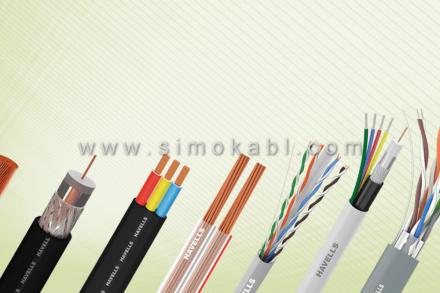
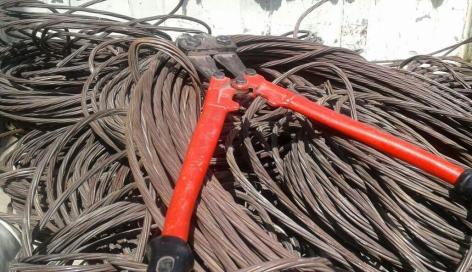
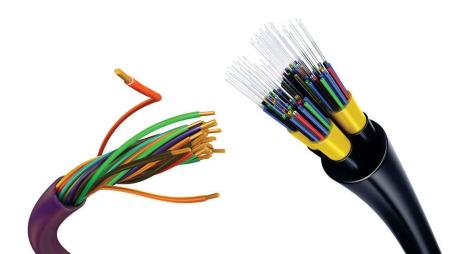

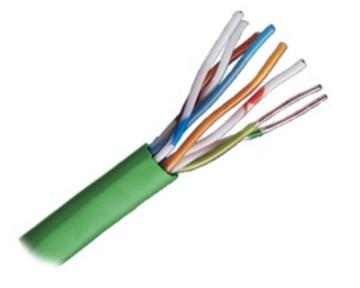
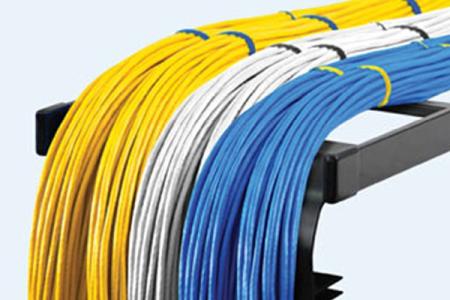

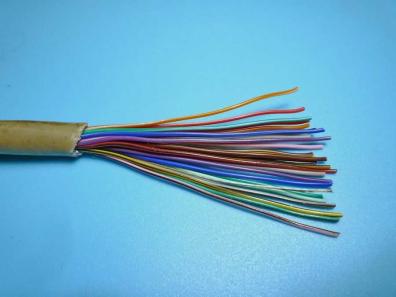
Your comment submitted.